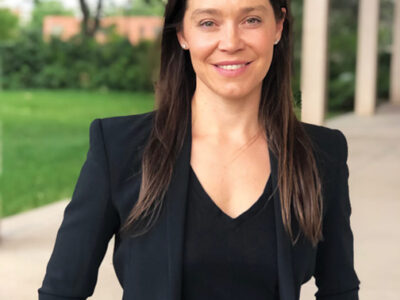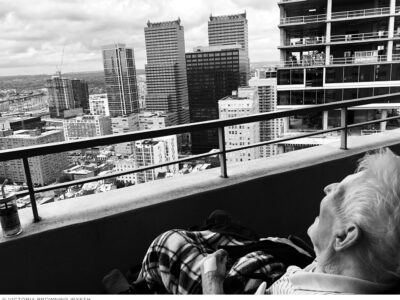
Four
years ago, a 32-year-old Orthodox
Jewish woman came into the Brooklyn clinic where Dr. Steven Brodsky C’82
worked as a psychotherapist. Since the age of 13, she told him, she suffered
from “intrusive cursing thoughts against God. It was very disturbing,”
Brodsky says, “because it was not what she believed.” Each time it happened,
when rabbis boarded the neighborhood bus she rode, for example, she would
engage in a ritual of blessing God or cursing the devil to cancel out
the unwanted thoughts.
Over time, she
stopped going to synagogue lest she shout blasphemies. She was afraid
to pray. “Most people didn’t have any idea she was suffering,” Brodsky
says. “If anything, she came across as a talkative, garrulous person.
Inside, she was under tremendous torment.”
This was Brodsky’s
first case treating a patient with religious manifestations of obsessive
compulsive disorder (OCD), a potentially-devastating mental illness which
he describes as “an equal-opportunity employer,” affecting people regardless
of socioeconomic, cultural or gender differences. Since then he has worked
with many more OCD sufferers, of a range of faiths, at the Center for
Cognitive-Behavioral Psychotherapy. An Orthodox Jew himself, Brodsky has
written about OCD in rabbinical newsletters and has tried to make all
clergy aware of the differences between devotion and disease.
A person can
be very strict in religious observance and not have a problem with OCD,
he points out. For most people who are religious, Brodsky says, their
faith inspires them and brings comfort. They find the rituals to be beautiful
and meaningful. And when they visit a confessional or atone for sins through
prayer, “they feel a certain sense of closure,” Brodsky says. “That’s
not the case with OCD. Someone with OCD would feel almost trapped in their
rituals.”
A Roman Catholic
may repeatedly confess even the most minor of sins to her priest. A Jew
preparing his house for Passover might find one crumb of leavened bread
in the kitchen and instead of simply scooping it up, would clean everything
a second time.
In most cases,
people with OCD recognize that their obsessions are unreasonable, but
they “can’t turn off their minds,” Brodsky says. Some are afraid that
if they seek psychological help, they’ll be told to be less religious,
which is not the case. In fact, he often counsels the patient with the
input of a clergy member of their choice.
If they’re not
familiar with the illness, he says, rabbis or ministers can inadvertently
make the problem worse by repeatedly reassuring the person that they haven’t
sinned. If they know about OCD, he says, “They can supportively say, ‘There’s
help for this. You can be serving God with joy rather than feeling so
anxious.’”
By the time Brodsky’s
first patient came to him, she had already tried medication and traditional
talk therapy, with limited success. He started her on cognitive-behavioral
psychotherapy, which he says research has proven to be most effective
in treating OCD. He helped the woman take small steps toward recovery
by facing feared situations, such as entering an empty synagogue, opening
a prayer book she had been avoiding for years and riding the bus through
a religious neighborhood. “Within less than a year, she basically had
no problems.”
For more information about OCD, contact Brodsky at <sjbrodsky@aol.com>.




